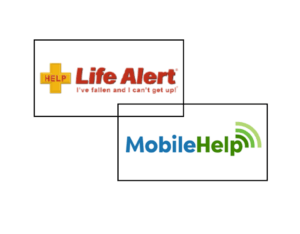Caring for a loved one or working as a professional caregiver involves numerous responsibilities, including understanding the relevant tax implications. The IRS has specific rules that can affect caregivers, whether you are providing care to a family member or working as an independent contractor. Here’s what you need to know to navigate caregiver IRS tax rules effectively.
Employment Status: Employee vs. Independent Contractor
The first thing you need to determine is whether you are classified as a caregiver. Essentially, if you provide a broad range of care services — from personal care to medical assistance — for someone with a physical or mental disability, or an aging individual, you may be categorized as a caregiver.
Secondly, you need to determine your employment classification. Are you a household employee or an independent contractor? This distinction is crucial because it influences the way you report income and what taxes you or your employer must pay. In determining employment status, the IRS looks at factors such as how much control the employer has over your tasks and schedule. They also consider whether you offer services to the general public and where your work is performed.
If you are looking to hire a caregiver, you may want to read my article on how to hire a caregiver, private vs. agency.
Household Employee: If you are hired directly by the family to provide care, you are generally considered a household employee. I would recommend completing a home care agreement if you are hired directly by the family. In this case, the family is responsible for:
- Withholding and paying Social Security and Medicare taxes (FICA).
- Providing a W-2 form at the end of the year, detailing your earnings and withheld taxes.
- Paying federal unemployment tax (FUTA), where applicable.
Independent Contractor: If you run your own caregiving business, you are likely classified as an independent contractor. This means you are responsible for:
- Paying self-employment taxes, which include both the employer and employee portions of Social Security and Medicare taxes.
- Making quarterly estimated tax payments if you expect to owe $1,000 or more in taxes for the year.
- Reporting your income and expenses on Schedule C (Form 1040).
Keep in mind that most caregiving agencies will hire you as an employee. However, there are some agencies out there that are “referral agencies” in which case you would be considered an independent contractor.
Tax Deductions and Credits
If you’re a caregiver, understanding the tax benefits and deductions available to you is vital for maximizing your tax return. It’s important to recognize eligible expenses so you can offset some of the costs associated with caregiving.

Dependent Care Credit: If you pay for care for a qualifying individual to enable you (and your spouse, if filing jointly) to work or look for work, you may be eligible for the Child and Dependent Care Credit. Qualifying individuals include:
- A dependent child under age 13.
- A spouse who is unable to care for themselves.
- Another dependent who lives with you for more than half the year and is unable to care for themselves.
Medical Expense Deduction: If you itemize deductions, you may deduct unreimbursed medical expenses that exceed 7.5% of your adjusted gross income (AGI). This can include:
- Costs for diagnosis, cure, mitigation, treatment, or prevention of disease.
- Treatments affecting any part or function of the body.
- Premiums for qualified long-term care insurance policies.
Earned Income Tax Credit (EITC): Caregivers with low to moderate income may qualify for the Earned Income Tax Credit, which can reduce the amount of tax owed and potentially result in a refund.
State-Specific Tax Rules
Tax benefits for caregivers can vary significantly from one state to another. It’s important to check with your state tax agency to understand any additional credits or deductions that may be available to you.
Record Keeping
Good record-keeping is essential for caregivers. Be sure to:
- Keep detailed records of all income received, expenses paid, and financial transactions related to caregiving duties.
- Maintain receipts for all business-related purchases and copies of any contracts or agreements with clients or employers.
- Document caregiving expenses meticulously to substantiate any deductions or credits you claim.
Retirement Contributions
IRA Contributions: Both household employees and independent contractors can contribute to an Individual Retirement Account (IRA). Contributions may be tax-deductible, depending on your income and whether you or your spouse are covered by a retirement plan at work.
Self-Employed Retirement Plans: Independent contractors have additional options for retirement savings, such as a SEP-IRA or a Solo 401(k), which allow for higher contribution limits compared to traditional IRAs.
Consulting a Tax Professional
Given the complexity of tax rules and the potential for significant tax benefits, consulting with a tax professional or accountant who specializes in caregiving and household employment can be highly beneficial. They can help ensure you are in compliance with IRS rules and optimize your tax situation.
Conclusion
Understanding IRS tax rules is crucial for caregivers to manage their financial responsibilities and maximize available benefits. By determining your employment status, taking advantage of deductions and credits, keeping thorough records, and consulting with a tax professional, you can navigate the tax landscape effectively and focus on what matters most—providing quality care.
For more detailed information and resources, visit the IRS website or consult with a tax advisor familiar with caregiving issues.
Here’s a little transparency: Our website contains affiliate links. This means if you click and make a purchase, we may receive a small commission. Don’t worry, there’s no extra cost to you. It’s a simple way you can support our mission to bring you quality content.
Recommended For You

What is the Senior Texting Code?
As more and more seniors are texting these days, we thought it would be good to answer everyone’s question…what is the senior texting code? So, we compiled a list! Bathroom …

Interview Questions For Hiring a Caregiver
Finding the right caregiver to care for your loved one is extremely important. And, often times not an easy task. And, if you’re not used

Home Safety Tips For The Elderly
More and more older adults are choosing to remain at home and live independently. With this comes concern about their safety. Falls, burns and poisonings

Smart Caregiver Bed Alarm Sensor Pad – For Peace of Mind
I know many caregivers who are caring for someone who is at risk of falling or wandering off. This can be a challenge and puts a lot of stress on …

What Is Virtual Caregiving? Will It Work For Me?
What is virtual caregiving? And, is it something that will work for you? I was reading the California Master Plan for Aging the other day and one of the goals …

Mobile Help Vs Life Alert – Comparison Review
If you are a caregiver or family member caring for an older adult, ensuring their safety and well-being is paramount. Medical alert systems provide a critical lifeline in emergencies, offering …

